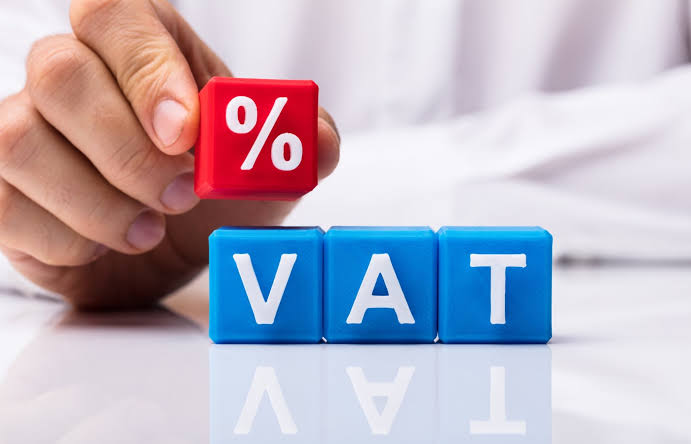02/12/2026

Why Bangladesh’s VAT Policy Needs Urgent Reform
Koushik Ahmed | Published: 2025-05-12 10:33:05

In today’s economic reality, Bangladesh’s low-income population is facing an unprecedented hardship in leading their lives. The rising cost of living, along with increased VAT and duties on essential goods, has made their situation even worse.
The shrinking size of cakes and biscuits in the market is not but a symbol—it reflects a deeper economic problem where people’s food security, nutrition and financial security are all at stake.
As the government tries to tackle a revenue shortfall, it has chosen to raise VAT and duties as a policy measure. To meet revenue targets under the International Monetary Fund (IMF)’s loan programme, the government increased VAT and supplementary duties on a number of products, including cakes and biscuits. The VAT on these bakery items was raised from 5% to 15%, though it was later reduced to 7.5% owing to wide public criticisms.
Many lower- and middle-income families rely on affordable foods like cakes and biscuits to manage one or more daily meals. Raising VAT on such basic items makes food even less accessible for them. This results in malnutrition, health risks and mental stress.
Lately, the 5% additional VAT on super shops has been withdrawn, a move that mainly benefits middle- and upper-income consumers. Meanwhile, hand-made biscuits priced below Tk 200 per kilogram are exempt from VAT, though this particular item is usually purchased by middle and upper-income consumers. Thus, the solvent class enjoys the tax exemption in this case.
On the other hand, low-income, working-class people who buy their food items such as bread, biscuits, cakes etc. from tea stalls and small local shops still have to pay VAT on these items. This really undermines the principle of social justice.
A recent survey conducted by the youth research group namely Youth Policy Network found that 99% of low-income individuals have to cut back on food at some point due to the inflationary pressure.
Six out of ten people regularly skip breakfast; some even miss lunch or dinner. Most households now depend on cheap, low-nutrition foods like biscuits, bananas, eggs, parathas etc.
This report reveals a darker side of the country’s economic scenario. Food cutbacks do not just mean going hungry—they will affect children’s growth, educational outcomes, women’s health and the people’s overall productivity.
The gravity of the situation is further underscored by the World Bank’s recent ‘poverty red alert’ for Bangladesh.
According to the warning, persistent inflation and declining real incomes are pushing millions of low and middle income families deeper into poverty. Food insecurity is rising sharply, forcing many families to reduce both the quantity and quality of their meals. Without urgent policy actions—such as expanding social safety nets and creating a fairer tax structure—the current poverty crisis could even worsen, undermining the gains of the country’s decades-long developments. This stark warning highlights the urgent need for a budget that prioritises food security, social justice and inclusive growth.
VAT is an indirect tax that consumers have to pay (while purchasing goods) regardless of their income level. However, its burden is highly unequal. For a high-income individual, VAT may account for just 5% of their income, whereas for someone living in poverty, it can take up 20–25%. Thus, a VAT-heavy budget increases inequality and contradicts the ethics of social justice. If the government has to promote inclusive growth and fairness, it must make the tax system more equitable and humane. Therefore, instead of relying heavily on indirect taxes, the focus should shift towards direct taxes—such as personal income tax, wealth tax and taxes on luxury properties. This would not only ensure fair revenue collection but also help reduce social inequality.
The national budget for FY2025–26 is now being prepared. So, the policy makers should consider lowering VAT on essential foods. VAT on daily food items, especially those consumed by low-income people, should be kept at 0%. Cakes, biscuits, bread, dairy products and eggs must be treated as essential items to ensure food security. Then, programmes such as rationing, cash assistance and food aid should be expanded to cover a greater number of the rural and urban poor.
Next, the government must establish an effective market monitoring system to prevent dishonest practices like price manipulation. Besides, tax holidays for the wealthy, opportunities for legalising undeclared money and excessive rebates for exporters must be re-evaluated. A fair and progressive tax system must be built.
We are at a point where every economic decision will directly determine whether people can afford to eat. No matter how important revenue collection is, it cannot come at the expense of people’s food security, nutrition and dignity of life.
A budget is not just a financial document—it is a reflection of political commitment. If that commitment is that of ensuring public welfare, then the upcoming budget must lower VAT on essential food items, strengthen social protection and reform the tax system to ensure fairness for all.
________________________
The writer is a journalist
Editor & Publisher : Md. Motiur Rahman
Pritam-Zaman Tower, Level 03, Suite No: 401/A, 37/2 Bir Protik Gazi Dastagir Road, Purana Palton, Dhaka-1000
Cell : (+88) 01706 666 716, (+88) 01711 145 898, Phone: +88 02-41051180-81